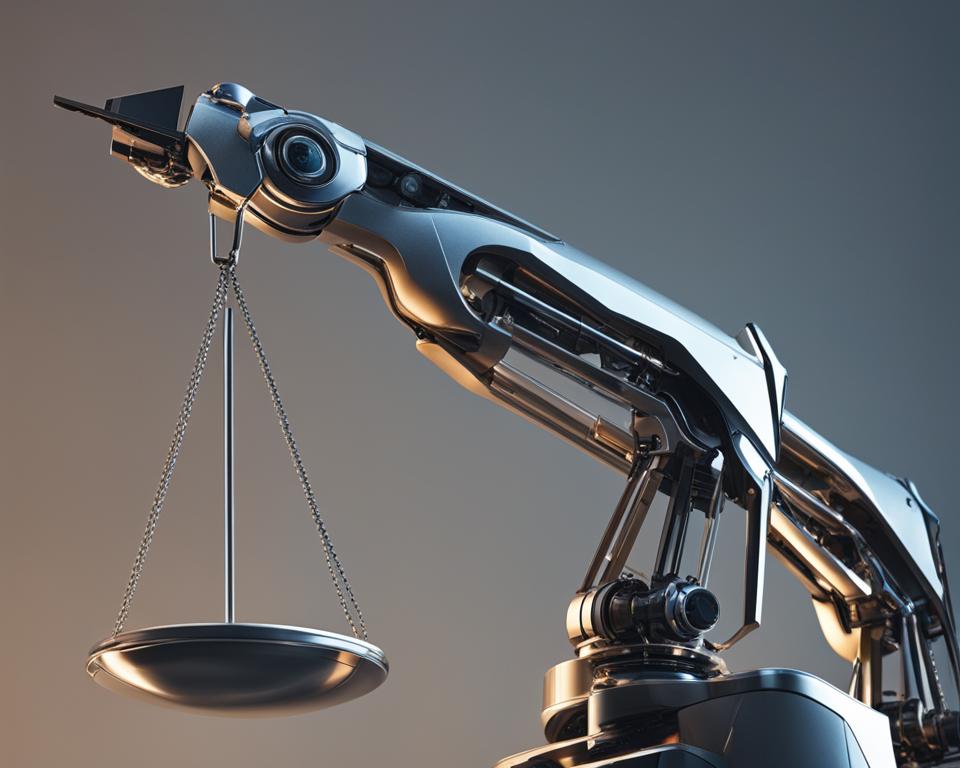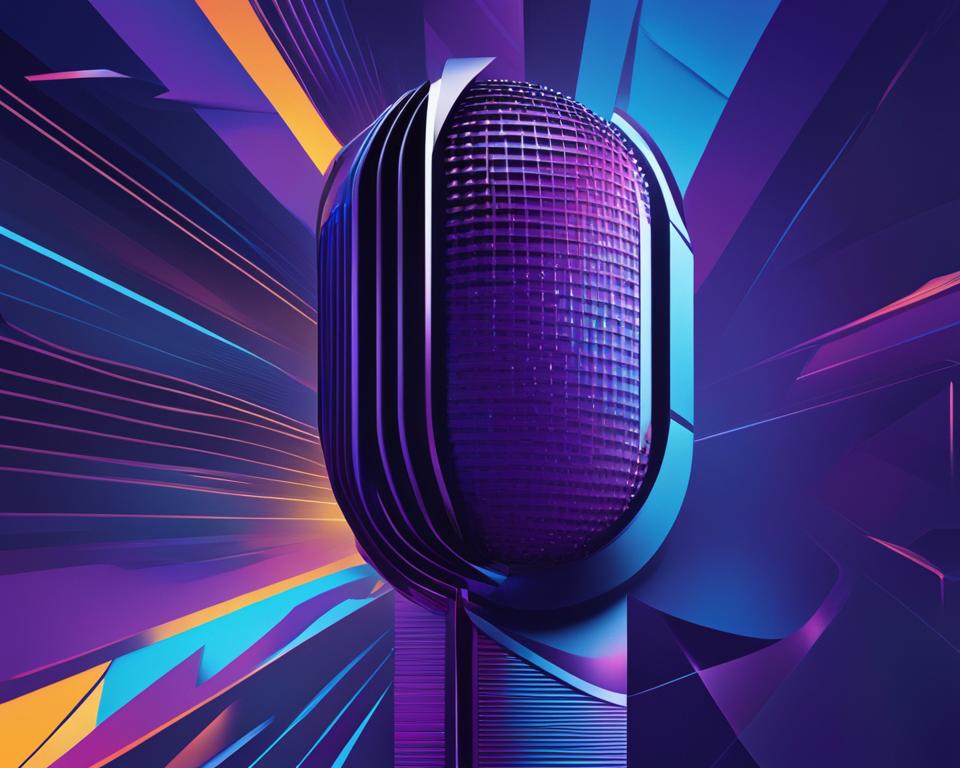As artificial intelligence (AI) continues to advance, so do the capabilities of AI-generated voices. While these voices offer significant benefits in streamlining certain industries, it is important to consider their legality and potential implications. In this section, I will explore the question – are AI voices legal? We will examine the current legal framework surrounding AI voices in various sectors, including entertainment, customer service, and more. Let’s dive into the legality of AI voices and what you need to know.
Exploring the Advancements of AI Voices
As AI technology continues to evolve, the advancements made in the field of AI voices have been nothing short of remarkable. Today, AI voices are transforming industries such as entertainment and customer service, among others.
In the entertainment industry, AI voices are being used to synthesize the voices of deceased celebrities, bringing them back to life for digital media and advertising purposes. This has been seen in recent commercials featuring voices of iconic figures such as Marilyn Monroe and Audrey Hepburn.
Meanwhile, in the customer service industry, AI voices are being used to create conversational bots that can interact with customers in a more natural-sounding way. These bots can be trained to handle a wide range of inquiries, from simple password resets to more complex service requests.
But the practical applications of AI voices extend beyond just these two sectors. Other industries such as healthcare, finance, and education are also exploring the use of AI-generated voices to enhance user experiences, improve accessibility, and streamline processes.
As the technology behind AI voices continues to improve, we can expect their use and impact to expand even further in the coming years.
Copyright Laws and AI Voices
In recent years, AI has rapidly evolved to create high-quality synthetic voices and conversational agents. While these advancements are impressive, they raise concerns around intellectual property rights and copyright laws.
As with any creative work, synthetic voices generated by AI are subject to copyright laws. The legal considerations of using AI voices in commercial projects mirror those of traditional copyrighted content. However, there are some unique challenges surrounding AI-generated voices.
| Legal aspect | Explanation |
|---|---|
| Voice ownership | One of the primary challenges with AI voices is determining who owns the voice. As AI-generated voices are created using machine learning algorithms and datasets, it can be challenging to establish ownership rights. |
| Voice licensing | Another issue is the licensing of AI voices. Voice actors and studios that record voiceovers for commercial projects typically sign licensing agreements that specify how their voices can be used. However, the use of AI-generated voices raises questions about licensing and royalties. |
| Protection from infringement | Finally, AI-generated voices can be easily replicated, making it challenging to protect against infringement. As voice cloning technology continues to improve, the potential for voice fraud and copyright infringement increases. |
These challenges have led to increased scrutiny of the legality of voice synthesis technology, particularly in the entertainment industry. While lawmakers have yet to establish comprehensive regulations surrounding AI voices, it is clear that they will need to address these issues in the years to come.
Ethical Implications of AI Voices
While AI voices offer several benefits, there are also ethical considerations that must be taken into account.
One of the major areas of concern is voice cloning, which can be used for malicious purposes such as voice fraud. With the ability to create near-perfect replicas of someone’s voice, it becomes easier to trick individuals into believing false information. This raises questions about the legality of voice cloning and the measures that need to be taken to prevent such unethical practices.
Furthermore, the use of AI voice actors can raise ethical concerns about the authenticity of performances. While AI voices may be useful in fields like entertainment and media, they can also create a sense of disingenuousness that undermines the human element of these industries.
As the use of AI voices becomes more widespread, it is important to consider and address these ethical concerns in order to ensure that their benefits are not outweighed by potential harms.
Voice Cloning Regulations
As AI voice technology continues to advance, regulations surrounding voice cloning and the use of AI-generated voices cannot be ignored. While there are currently no federal laws specifically addressing voice cloning in the United States, some states have implemented their own regulations.
For instance, in New York State, it is illegal to use a digital or electronic voice to impersonate someone for fraudulent purposes. California, on the other hand, passed a law that makes it illegal to use a deepfake voice or video of a political candidate in a campaign advertisement without disclosing it to the audience.
In addition, industry-specific regulations also exist. For example, advertising agencies must comply with Federal Trade Commission guidelines that prohibit deceptive advertising practices. This means that the use of AI-generated voices in advertisements must not be misleading or deceptive to consumers.
Overall, it’s clear that regulations surrounding AI voices and voice cloning are still in their early stages and subject to ongoing development. As the technology continues to evolve, so too will the legal frameworks that attempt to regulate its use.
Future Potential of AI Voices
The development of AI voices has come a long way since its inception. With the advancements in voice synthesis technology, it has become possible to create incredibly realistic and natural-sounding voices. It holds a great promise for various industries, including entertainment, healthcare, customer service, and education.
The future of AI voices is bright, and ongoing research and development show no signs of slowing down. In the coming years, AI-generated voices are likely to become more prevalent, with even more applications in different sectors. For example, companies can use AI voices to create more personal and engaging customer experiences.
Legally, the use of AI voices will continue to evolve with the technology itself. While there are currently no regulations in place regarding the use of AI-generated voices, it is likely that legal frameworks will emerge as AI voices become more mainstream.
Overall, the future potential of AI voices is vast, and companies that embrace this technology and use it wisely will have a competitive advantage in the market. The possibilities and benefits of AI voices are endless, and it will be exciting to see how this technology progresses and evolves in the coming years.
Conclusion
In conclusion, the legal implications of AI-generated voices are complex and far-reaching. As we have seen in the preceding sections, there are numerous legal considerations surrounding the use of AI voices in various industries, from copyright laws to ethical concerns.
One of the primary legal concerns with AI voices is the potential for voice fraud and identity theft. As voice cloning technology becomes more sophisticated, there is a growing risk of criminals using AI-generated voices for malicious purposes.
Another legal consideration is the use of AI voices in creative works, such as music or film. Copyright laws may need to be updated to reflect the use of AI-generated voices in these contexts.
Despite these legal concerns, the future potential of AI voices is vast. From improving customer service to creating more realistic virtual assistants, AI-generated voices have the potential to transform a wide range of industries.
As the field of AI voices continues to evolve, it will be important for lawmakers and industry professionals to remain vigilant and address any legal concerns that may arise. By doing so, we can ensure that AI-generated voices are used ethically and within the bounds of the law.




